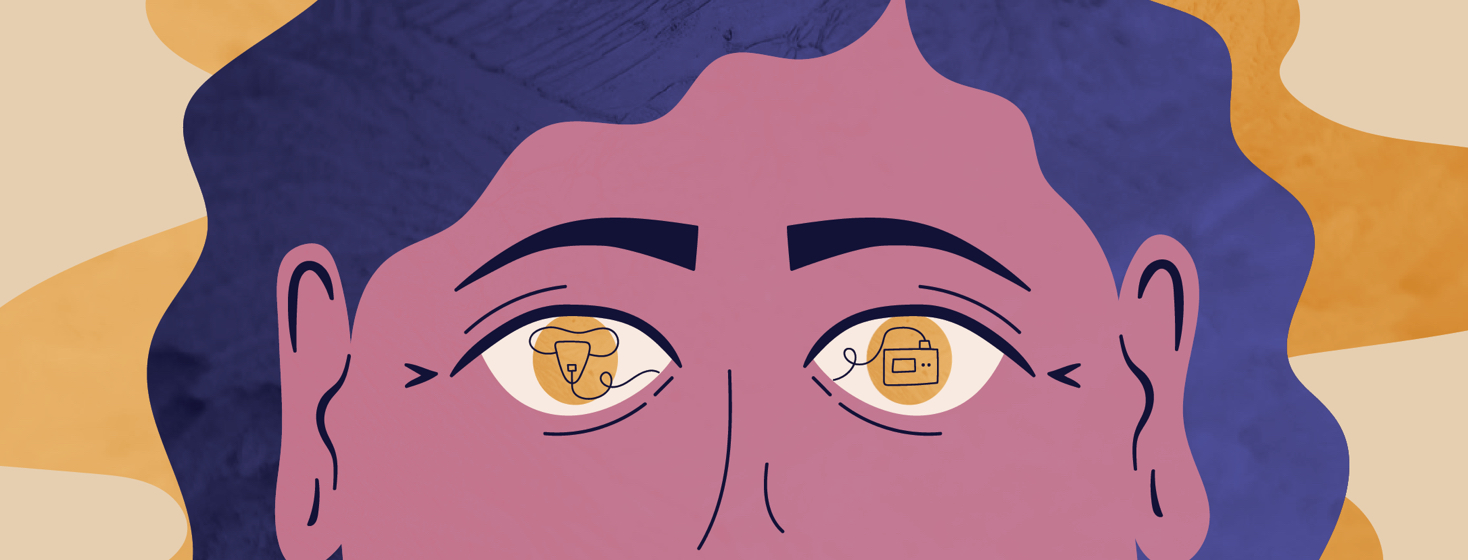Seeing the Effects of CPAP Treatment
When I first started using my CPAP, I had limited expectations. All I really wanted the machine to do was help me stop snoring – that was my sole motivation for donning the mask.
Yes, I’d received an obstructive sleep apnea diagnosis based on a sleep lab test, indicating that my health was at risk. But I didn’t think the condition was actually affecting me much day-to-day, other than driving my mate down the hall into the guest room.
I didn't feel these sleep apnea symptoms
Like you, I’d done the Epworth questionnaire a few times. How likely are you to doze off or fall asleep in these situations:
- Sitting and reading? Zero.
- Watching TV? Zero.
- Sitting inactive in a public place, like a meeting? OK, that one’s not really fair – most meetings are boring!
But you get the picture. I wasn’t falling asleep left and right. Doctors asked other questions, too.
- Did I feel fatigued during the day? Not noticeably, no.
- Did I have headaches? Not often, and usually sinus-related.
- High blood pressure? Never.
- BMI over 28? No.
- Changes in mood? Not that I was aware of.
CPAP therapy changed my life
I was prescribed the CPAP after failing on oral appliances and coping for several months with untreated snoring. When I started, I didn’t expect to see a change in anything but my decibel level. But within a month, CPAP therapy had legitimately changed my life.
Eyes wide open.
I apologize in advance to the many people who’ve reported they felt no relief from CPAP therapy, even if technically their OSA is better managed. That must be incredibly frustrating.
Symptom improvement
Many of the symptoms that doctors ask about are resolved for people by CPAP therapy: More daytime alertness, fewer headaches, lower blood pressure, improved mood, etc.
But changes in blood pressure or other invisible health markers are cold comfort when you’re still groggy during the day. Fortunately, some other therapies for that are emerging, such as Sunosi® (solriamfetol), a non-stimulant medication.
The first few days of my therapy were already gratifying. The machine didn’t completely eliminate my snoring but reduced and muffled it enough for my husband to sleep through the night beside me with earplugs.
Ways I felt different on CPAP therapy
On about day 7, though, I woke up and did feel different. After popping in my content lenses, I looked around and swore that… well, I could actually see more clearly. There was a sense of sharpness that I didn’t realize had been missing before.
My mood improved
That became a recurring theme in the following weeks. I had, in fact, been profoundly impaired from a protracted lack of deep REM sleep without realizing it. My mood, for instance. At the time, my company was being acquired. My attitude towards the change had been consistently negative. Within a few weeks, I felt differently about it – yes, the transition was still challenging, but now I felt equipped to deal with it. I’d been unaware of how my emotional resilience was worn down.
My concentration improved
My ability to concentrate at work improved as if a dulling brain fog had lifted. Yes, I’d been performing my job well enough (don’t want to worry the boss if he reads this!), but not as efficiently as I used to. I’d found myself working late hours and weekends, with tasks taking longer than I believed they should. Gradually, I sensed I was moving back into “the zone” where I could focus and be productive.
No longer dependent on caffeine
Excessive daytime sleepiness wasn’t something I consciously experienced. But I was also quite caffeine-dependent. (Diet Coke is my therapy of choice.) While the CPAP didn’t exactly turn me into a morning person, it did help me start my day without feeling and looking hungover (and not having drunk a drop of alcohol, to be clear). I still go for the Diet Coke, but because I like it.
My face no longer told my story of poor sleep
I used to look in the mirror and joke that my 30-something hangover face was now my 50-something every-day face. Well, the wrinkles are still there, but the dark circles and puffiness diminished when I finally got better sleep.
Grateful to be where I am today
Looking back, I wish I’d “failed” with the appliances earlier or gone with the CPAP from the get-go. But I wasn’t psychologically ready for that, so my journey was my journey.
Today, though, I’m grateful for this intervention. I even look forward to putting on the mask every night because I know that I’ll wake up to a better tomorrow.

Join the conversation